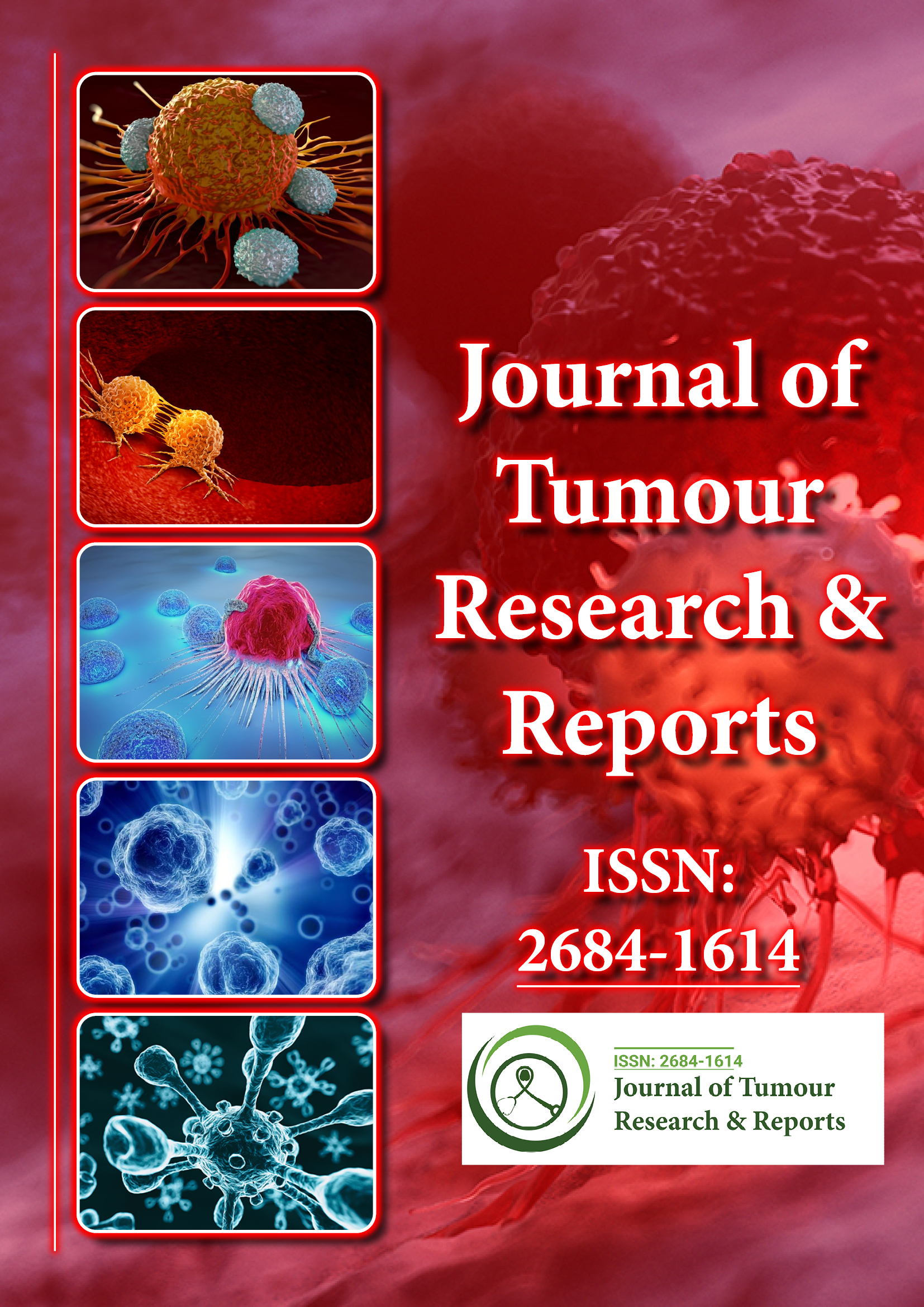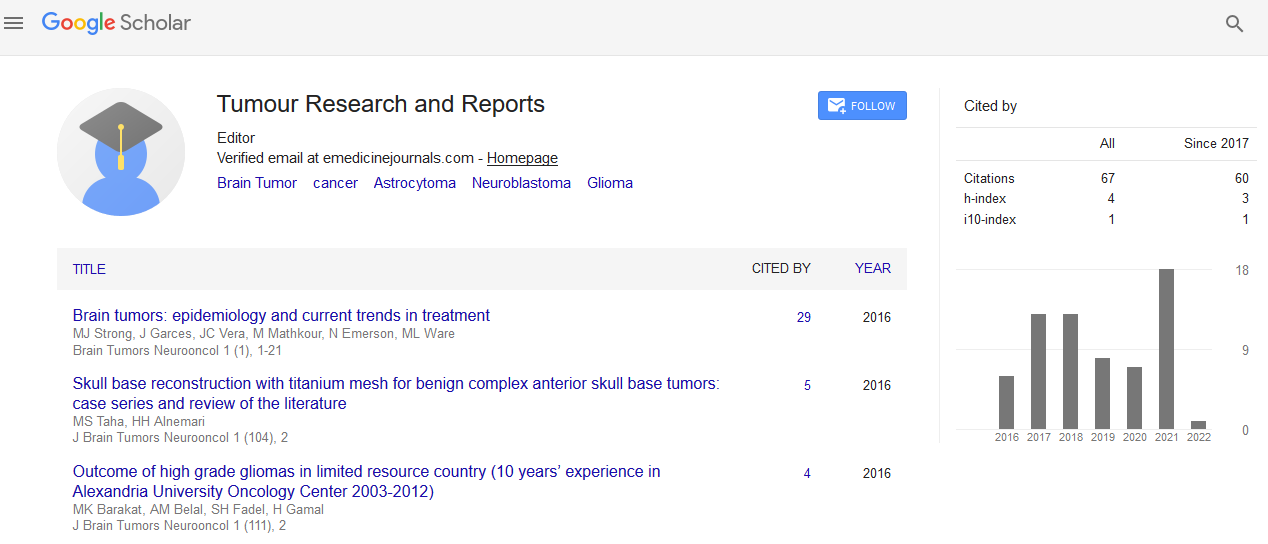Indexed In
- RefSeek
- Hamdard University
- EBSCO A-Z
- Google Scholar
Useful Links
Share This Page
Journal Flyer

Open Access Journals
- Agri and Aquaculture
- Biochemistry
- Bioinformatics & Systems Biology
- Business & Management
- Chemistry
- Clinical Sciences
- Engineering
- Food & Nutrition
- General Science
- Genetics & Molecular Biology
- Immunology & Microbiology
- Medical Sciences
- Neuroscience & Psychology
- Nursing & Health Care
- Pharmaceutical Sciences
Abstract
Recurrent Primary CNS Lymphoma Presenting with Central Neurogenic Hyperventilation
Odia Y and Kreisl TN
Background: Tumor-induced Central Neurogenic Hyperventilation (CNH) is exceedingly rare, about half resulting from Primary CNS Lymphoma (PCNSL) despite their rarity.
Results: We present a 75 year-old, immunocompetent woman with recurrent PCNSL leading to CNH. She was initially diagnosed with PCNSL via biopsy of the single enhancing left caudate focus among diffuse, nonenhancing CNS infiltrative disease without diffusion restriction or CSF or intraocular dissemination. She received 5 cycles of biweekly rituximab and methotrexate, initially dosed at 3.5 gm/m2 with procarbazine and vincristine, then dosed at 8 gm/m2 with monthly temozolomide 150 mg/m2. Repeat brain MRI revealed no residual enhancement with confluent subcortical nonenhancing signal without brainstem involvement suggesting methotrexate-related leukodystrophy. Two weeks after cytarabine consolidation, she presented with intractable emesis without gastrointestinal cause. A week later, she developed marked tachypnea without cardiopulmonary etiology. Blood glasses revealed respiratory alkalosis (maximal pH=7.67, respiration=27, pO2=241; minimum pCO2=10). She remained otherwise neurologically intact. For suspicion of CNH, she was intubated and brain MRI revealed progressive nonenhancing disease without restricted diffusion extending periventricularly from dorsal midbrain to vermis. CSF profile revealed normal protein (40 mg/dL), RBC 97/µL, WBC 3/µL (88% lymphocytes) with negative bacterial cultures, toxoplasma IgG and HSV, JC, CMV, EBV and JC PCRs. Flow cytometry and cytology revealed no lymphoma cells. Brain and body PET revealed avid FDG-uptake in the new periaqueductal nonenhancing tumor, confirming lymphoma recurrence; no extracranial disease was evident. Her CNH resolved though remission was only brief following posterior fossa radiation (30Gy, 17fx), dexamethasone 40 mg/day, and off-label nivolumab 3 mg/kg q 2 weeks. Repeat brain MRI revealed diffuse cerebral nonenhancing disease progression at 4 months after recurrence. She died shortly after transfer to hospice.
Conclusion: This represents the first recurrent PCNSL leading to CNH, which was a presenting symptom in all prior PCNSL cases reported and lead to death in the majority.

